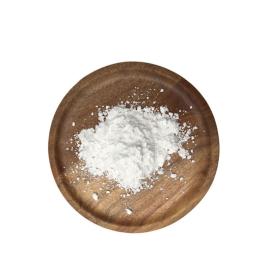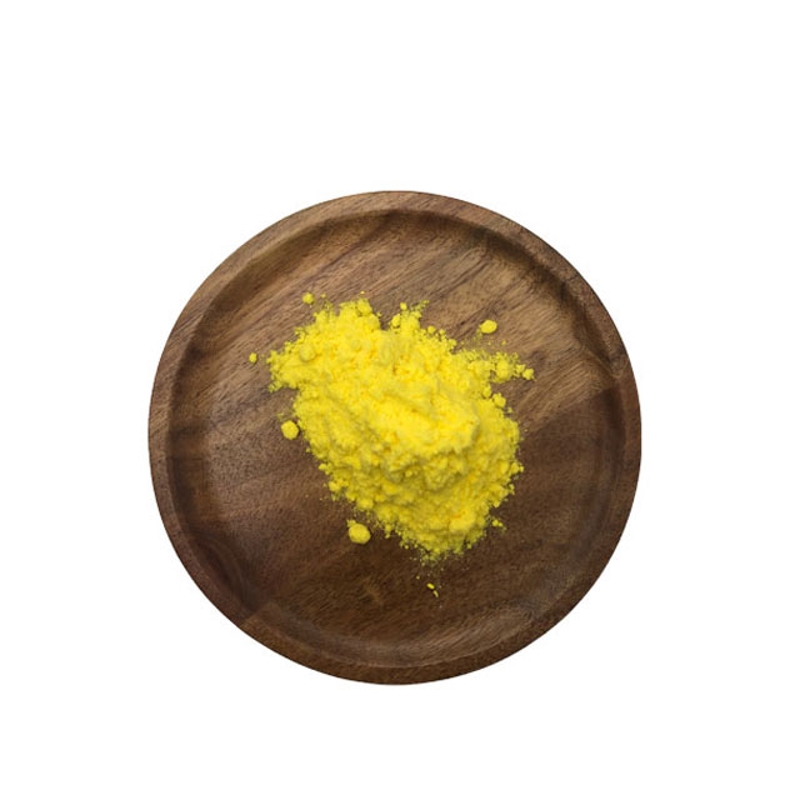-
Categories
-
Pharmaceutical Intermediates
-
Active Pharmaceutical Ingredients
-
Food Additives
- Industrial Coatings
- Agrochemicals
- Dyes and Pigments
- Surfactant
- Flavors and Fragrances
- Chemical Reagents
- Catalyst and Auxiliary
- Natural Products
- Inorganic Chemistry
-
Organic Chemistry
-
Biochemical Engineering
- Analytical Chemistry
- Cosmetic Ingredient
-
Pharmaceutical Intermediates
Promotion
ECHEMI Mall
Wholesale
Weekly Price
Exhibition
News
-
Trade Service
Source: Pharmaceutical Rubik's Cube Med 2020, the State Drug Administration (NMPA) approved a total of 16 new cancer drugs.
Based on the Pharmaceutical Rubik's Cube NextPharma database, NextMed database, 2020 version of the new anti-tumor drug clinical application guidelines and public information, the pharmaceutical Rubik's Cube Med specially launched "oncology new drug data card", for you to introduce some key information on the domestic market of new cancer drugs for your reference.
Atili Pearl Single Anti-Q1 Basic Information Tecentriq, Tai Sanqi, commonly known as "T-Drug") is a humanized IgG1 monoclonal antibody developed by Roche that was originally approved by the FDA on May 18, 2016 for bladder cancer, becoming the world's first approved PD-L1 monoantimmune.
the drug was approved for listing by NMPA on February 11, 2020 through a priority review, and is the second PD-L1 monoantiton to be approved for listing in China after AstraZenezi.
Q2-listed small cell lung cancer (SCLC) accounts for about 15 percent of all lung cancer cases, and about 70 percent of SCLC patients are diagnosed with a "widespread period," which usually means poor prognosis.
, SCLC is more invasive, grows rapidly, and metastasises earlier than other lung cancer subtypes.
the past 30 years, cisplatin/carbatin combined etoposide has been firmly in the position of first-line standard treatment of SCLC in a wide range of periods, and most new drug trials have failed.
currently has 8 PD-1/PD-L1 drugs approved for market in China.
, AstraZeneta's Imfinzi was approved in China for 2019/12/9 to treat non-excisible stage III non-small cell lung cancer that did not progress after simultaneous chemotherapy.
Q3 adaptive Tecentriq has been approved worldwide for bladder cancer, advanced/metastatic non-small cell lung cancer, triple-negative breast cancer, small cell lung cancer, hepatocellular carcinoma, melanoma, etc.
Tecentriq was approved in China as: 1) combined chemotherapy first-line treatment of extensive stage small cell lung cancer;
September 2020, Roche submitted Tecentriq's third application for the listing of the disease in China for single-drug first-line treatment of PD-L1-positive, EGFR gene mutation-negative and ALC-negative metastasis NSCLC, which is currently in the "review" phase.
the use of Tecentriq, a global progression (partial) Q4 treatment, is a fixed dose of 1200 mg, administered intravenously.
combined with carbatin and etoposide, the induction period is once every 3 weeks, and after 4 cycles of treatment, the maintenance period without chemotherapy is entered, once every 3 weeks.
and beva beads single anti-combined drug use, the first infusion of atili pearl monoanti, followed by intravenous infusion of beva bead monoanti, the same is given every 3 weeks.
1200mg/20ml is priced at $32,800.
are given at a fixed dose of 1200 mg/times, once every 3 weeks, for a period of 21 days (the course of treatment), until the clinical benefits disappear or unacceptable toxicity occurs.
, the cost of treatment reached 590,000, according to the first published PAP program, the annual cost of aid after the grant of treatment is about 394,000.
Tecentriq is not currently on the national health-care list. The
Annual Report Sales Chart Q5 Evidence-Based Data and Core Clinical IMpower133 study showed that Tecentriq's combined treatment with etoposides and carpentry extended the MOS for first-line treatment in ES-SCLC patients from 10.3 months to 12.3 months.
also prompted the 2019 NCCN guidelines to include the "Atezolizumab plus etoposide plus capratin" treatment as a first-line recommendation for ES-SCLC systemic therapy.
IMpower133 study, as a landmark study of extensive SCLC first-line treatment, rewrites the 30-year history of cisplatin/carplatin combined etoposide as the first-line standard treatment status of broad-period SCLC.
the IMbrave150 study in China, Tecentriq-Avastin significantly extended OS and PFS in Chinese liver cancer patients as a first-line therapy, reducing the risk of death by 56% (HR s 0.44).
results released by ASCO-GI in 2021 show that the mOS data for Chinese group reached 24 months.
Atili-Pearl monoanti-bergant is the first and only immunotherapy approved for first-line treatment of hepatocellular carcinoma, and the first-line therapy for hepatocellular carcinoma to significantly extend its survival compared to Sorafini since 2007.
IMpassion130 study, Tecentriq combined with the first-line treatment of PD-L1 expression (≥1%) and metastasis triple negative breast cancer (TNBC) patients showed statistically significant benefits for PFS and OS.
Tecentriq combination drug is the first cancer immunotherapy approved for breast cancer and has been approved in more than 70 countries for the treatment of PD-L1 expression (≥1%), non-removable localized advanced or metastasis TNBC patients.
However, in the IMpassion131 study, Tecentriq's first-line treatment of PD-L1-positive, metastasis TNBC did not reach the main endpoint of PFS compared to placebo and chemotherapy;
phase II POPOR and Phase III OAK studies support Tecentriq's approval and use in NSCLC second-line studies.
NSCLC first-line treatment, on the basis of encouraging early research, IMpower150, IMpower130, IMpower110, IMpower132, IMpower131 and other Phase III studies have been carried out.
The four-drug treatment for non-squamous cancer can also benefit patients with EGFR/KRAS mutations and liver metastasis; Anti-carbaptonin-albumin yew alcohol (ACnP) can be used for first-line treatment in patients with non-scale cancer NSCLC without EGFR/ALK changes;
In addition, Tecentriq has many or successful, or failed, research layouts on bladder, urethra, early triple-negative breast cancer, colorectal cancer, and ovarian cancer.
Tecentriq Core Clinical Layout (partial) Note: Data source NextClinTrial database, reserved only for drug registration, or key clinical trials for change guidelines; CSCO Guidelines for the Diagnosis and Treatment of Small Cell Lung Cancer (2020 edition) The initial treatment of the widespread SCLC 2. CSCO Guidelines for the Diagnosis and Treatment of Primary Liver Cancer (2020 Edition) Advanced HCC First-Line Treatment 3. CSCO Guidelines for the Diagnosis and Treatment of Non-Small Cell Lung Cancer (2020 edition) 4. Advanced non-small cell lung cancer anti-angiogenesic drug therapy China expert consensus (2020 version) recommendation 2: In patients with advanced non-scale NSCLC who drive gene mutation negative and PS 0 to 1 points, recommended atilijutin monoantigen combined beva bead monoanti, carpentry and yew alcohol program as a first-line treatment option (II.grade recommendation, class 1A evidence).
Recommendation 4: EGFR sensitive mutations after TKI treatment of disease progression, and there is no evidence to suggest that T790M mutation patients, or patients with T790M mutations after the failure of Oghitini treatment to exclude other targeted drug treatment opportunities, recommended the use of atili bead monoanti-beva bead monoantigen-carpatin-esophonol four-drug program as a back-line treatment option (III.recommended, class 2A evidence).
Recommendation 12: For patients with late-stage non-scale NSCLC with the driving gene of liver metastasis, atili-pearl monoanti-anti-combined beval-bead monoantigen, carbapatin and yew alcohol treatment options can be used as a first-line option (GRADE II.recommended, Class 2A evidence).
Q7 Reasonable Drug Use Point 1. Patients may receive atilijucon monoantitherapy until there is no clinical benefit or unacceptable toxicity.
if the patient's clinical symptoms are stable, even if there is preliminary evidence of disease progressity, the continued use of this treatment may be considered based on the overall clinical benefit judgement.
closely monitor patients who continued to be treated with atilijudant after responding to disease progression, and repeated tumor efficacy assessments within 4 to 8 weeks.
2. For suspected immune-related adverse reactions, an adequate assessment should be carried out to identify the cause or rule out other causes.
depending on the type and severity of the adverse immune-related reactions, it may be necessary to suspend or permanently stop the drug, and it is not recommended to increase or decrease the dose.
. Avoid the use of systemic glucoticoids or other immunosuppressants before using this product, as these drugs may affect the pharmacological activity and efficacy of this product.
can be treated with systemic glucoticoids or other immunosuppressants for adverse immune-related reactions after the drug has been given.
it is not recommended to re-use atilijutin during treatment with immunosuppressive doses of glucosin or other immunosuppressants.
4. The safety and effectiveness of atilijudol in children under 18 years of age and adolescent patients has not yet been established.
patients (≥65 years old), patients with mild liver function impairment, and patients with mild and moderate renal impairment do not need to adjust the dose.
The safety and effectiveness used in patients with moderate to severe liver functional impairment and severe renal impairment have not yet been established, and if the expected benefits of using this product are assessed by the physician to be greater than the risk, they need to be used with caution under the guidance of the physician.







